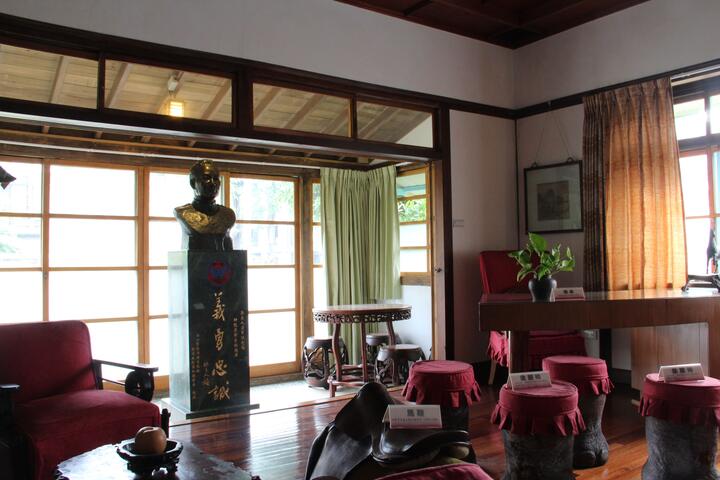General Sun Li-jen's Residence Introduction
無

無
Address:18 Section 1, Xiangshang Road, West District, Taichung City 403
無
General Sun Li-jen's Residence Travel Information
Address:18 Section 1, Xiangshang Road, West District, Taichung City 403
Other Nearby Attractions: Asas Statue 、 Cultural Park Trail 、 PARK2 Caowu Square 、 Green Light Project 、 Audit Village 、 Taichung Cultural Center 、 Qinmei Eslite Green Park Road 、 Zhonghua Road Night Market 、 Lin Chih-tzu Memorial Hall 、 Zhongxin Market
Nearby Cuisine: Eight Points Full 、 Akasakaya Japanese Charcoal Grilled Yakiniku Restaurant 、 O'food Low GI Light Meal Restaurant Taichung Gongyi Branch 、 Tang Tai Chong Health Stewed Soup Tainan Public Store 、 Black Castle - Italian and French Cuisine Cultural Restaurant 、 Smoky Joe's American-Mexican Restaurant 、 Malu Lian Herbal Jelly Flagship Store 、 Little Fisher's Shao Ji Chicken 、 Charcoal Grill BBQ Workshop 、 Chun Shui Tang - National Museum of Fine Arts Branch